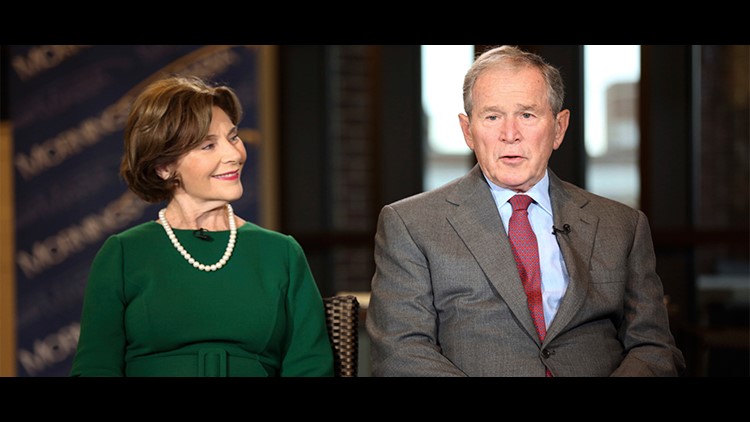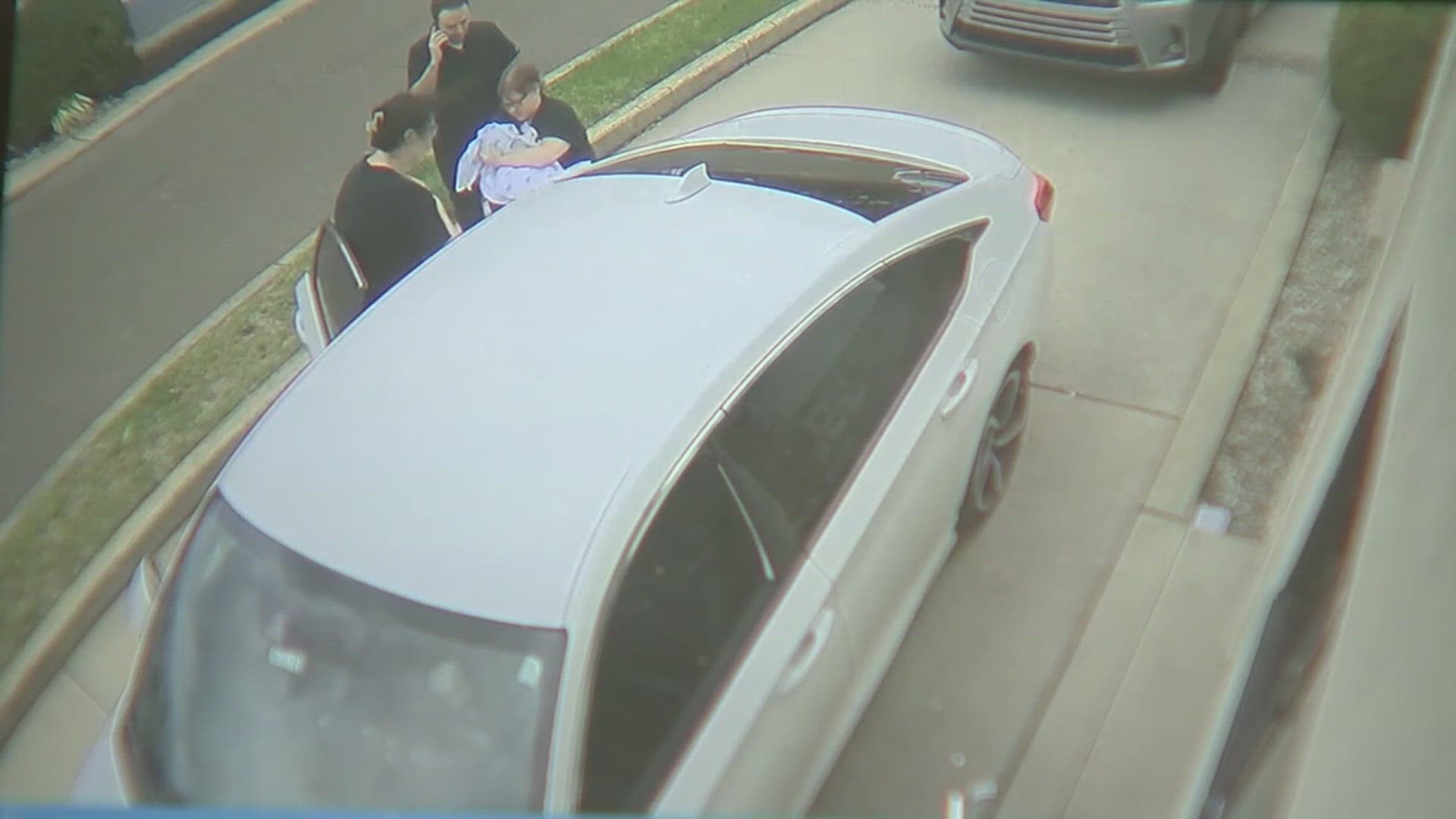HOUSTON — In the wake of George Floyd's death, former President George W. Bush said he and his wife, Laura, were "disturbed by the injustice and fear that suffocate our country."
The Bushes said they didn't feel like it was their time to speak out, but rather it was time for them to listen.
"It remains a shocking failure that many African Americans, especially young African American men, are harassed and threatened in their own country," the Bushes' statement reads.
George and Laura said they believe that peaceful marches are good for the country.
Here is the full statement:
"Laura and I are anguished by the brutal suffocation of George Floyd and disturbed by the injustice and fear that suffocate our country. Yet we have resisted the urge to speak out, because this is not the time for us to lecture. It is time for us to listen. It is time for America to examine our tragic failures – and as we do, we will also see some of our redeeming strengths.
"It remains a shocking failure that many African Americans, especially young African American men, are harassed and threatened in their own country. It is a strength when protesters, protected by responsible law enforcement, march for a better future. This tragedy — in a long series of similar tragedies — raises a long overdue question: How do we end systemic racism in our society? The only way to see ourselves in a true light is to listen to the voices of so many who are hurting and grieving. Those who set out to silence those voices do not understand the meaning of America — or how it becomes a better place.
"America’s greatest challenge has long been to unite people of very different backgrounds into a single nation of justice and opportunity. The doctrine and habits of racial superiority, which once nearly split our country, still threaten our Union. The answers to American problems are found by living up to American ideals — to the fundamental truth that all human beings are created equal and endowed by God with certain rights. We have often underestimated how radical that quest really is, and how our cherished principles challenge systems of intended or assumed injustice. The heroes of America — from Frederick Douglass, to Harriet Tubman, to Abraham Lincoln, to Martin Luther King, Jr. — are heroes of unity. Their calling has never been for the fainthearted. They often revealed the nation’s disturbing bigotry and exploitation — stains on our character sometimes difficult for the American majority to examine. We can only see the reality of America's need by seeing it through the eyes of the threatened, oppressed, and disenfranchised.
"That is exactly where we now stand. Many doubt the justice of our country, and with good reason. Black people see the repeated violation of their rights without an urgent and adequate response from American institutions. We know that lasting justice will only come by peaceful means. Looting is not liberation, and destruction is not progress. But we also know that lasting peace in our communities requires truly equal justice. The rule of law ultimately depends on the fairness and legitimacy of the legal system. And achieving justice for all is the duty of all.
"This will require a consistent, courageous, and creative effort. We serve our neighbors best when we try to understand their experience. We love our neighbors as ourselves when we treat them as equals, in both protection and compassion. There is a better way — the way of empathy, and shared commitment, and bold action, and a peace rooted in justice. I am confident that together, Americans will choose the better way."
What happened
Floyd's death has sparked protests across the world, some peaceful and others violent.
Floyd died in Minneapolis on May 25 when an officer was seen on video kneeling on his neck for nearly 11 minutes in an attempt to detain him for what police called a non-violent forgery.
Derek Chauvin was identified as the officer seen on video with his knee on Floyd's neck while Floyd was pleading, "I can't breathe."
Chauvin and three other officers were fired following his death, but protesters took the street of Minneapolis to demand the officers be charged.
It wasn't until four days later that Chauvin was arrested and charged with third-degree murder and second-degree manslaughter. The three other officers who were at the scene have not been charged.
The news of Chauvin's arrest hasn't stopped protesters from continuing to gather in cities like New York, Chicago and Atlanta to demand justice for Floyd and speak out about police brutality.
Many of the protests around the country have led to the looting of businesses and more violence between citizens and police officers.



